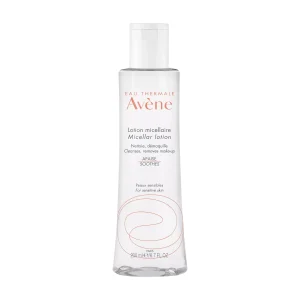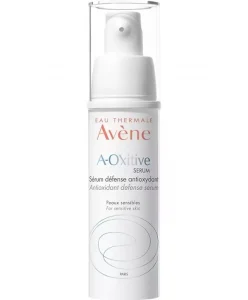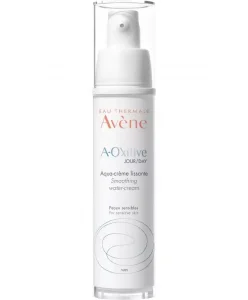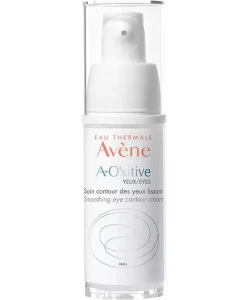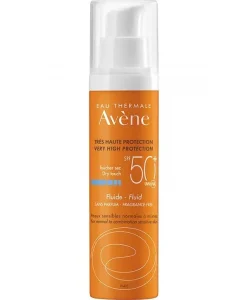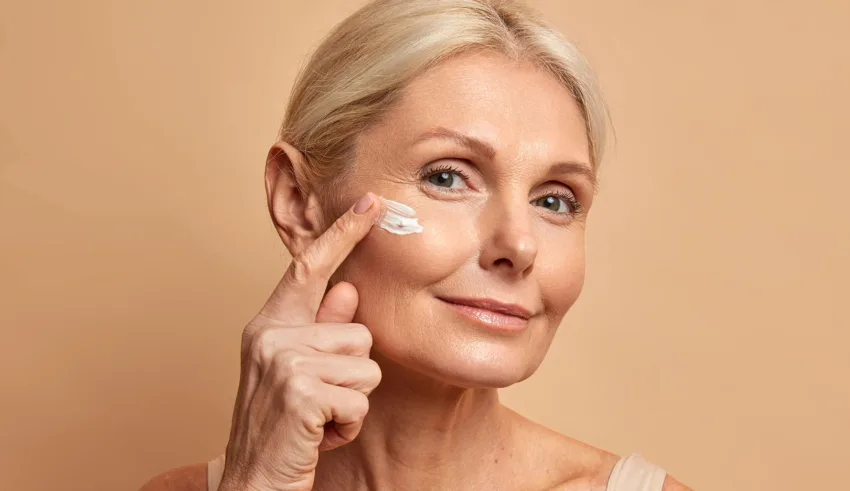
They say beauty is a short-lived luxury, but with the introduction of cosmetic creams, beauty is more durable than ever! We all wish we could turn back time and never take our wrinkle-free skin for granted. The days of youth are long gone, and all that remains is the inevitable aging. In this modern age, anti-aging creams are the holy grail for people who don’t want to look their age. Still, why do wrinkles occur? Read this article from The Dermo Lab in collaboration with the dermatologist Dr. Dina Ismail to learn what causes wrinkled skin and discover her selection of the best anti-aging creams.
What are the causes of wrinkled skin?
According to Dr. Dina Ismail, wrinkles are a natural part of the aging process. As we age, our skin becomes thinner, drier, and less elastic, which means it is less able to protect itself from damage. This leads to the appearance of wrinkles, folds, and lines on the skin.
She adds that facial expressions, such as smiling, frowning, or squinting, cause wrinkles and fine lines to appear at an early age. These wrinkles deepen as the person ages. When a person is young, the skin is relaxed. As a person ages, the skin loses its flexibility and it becomes more difficult for it to straighten, resulting in permanent furrows.
“Wrinkles affect people of different skin colors differently because of structural and functional differences in the skin. Research indicates that the compact dermis is thicker in the skin of blacks and Asians, which probably protects them from facial wrinkles,” explains Dr. Dina Ismail.
She also points out that many factors influence the development of wrinkles, including
- Sun exposure
- Smoking
- Dehydration
- Certain medications
- Environmental and genetic factors
Dr. Dina Ismail explains that UV rays break down collagen and elastin fibers in the skin. These fibers form the connective tissue that supports the skin. When this layer breaks down, the skin becomes weaker and less flexible. It begins to sag and wrinkles appear.
What are the deficiencies that can cause wrinkled skin?
Dr. Dina Ismail points out that five vitamin deficiencies cause sensitive skin:
- Vitamin E- Vitamin E deficiency can cause several skin disorders or lead to dry skin, premature aging, and increased wrinkles.
- Vitamin D- Low levels of vitamin D can not only affect your bones but also your skin. It is associated with dry skin and, in some cases, a risk of psoriasis and atopic dermatitis.
- Vitamin K- Low levels of vitamin K can lead to skin problems such as dark spots, scars, and circles under your eyes, and prevent your body from healing from skin problems such as bruising or swelling.
- Vitamin C- Vitamin C plays a role in collagen production and keeps your skin healthy. A lack of vitamin C can cause dry skin, inflammation, wrinkles, and age spots.
- Vitamin B – A lack of vitamin B can cause damage to your skin, resulting in acne, rashes, dry, flaky skin, cracked lips, and wrinkles.
How to reduce wrinkles?
Here are some essential tips to get the skin care routine you need.
1- Wash your skin with a gentle cleanser
Cleansing is important to remove any skincare products or makeup you’ve applied during the day, as well as the skin’s natural oils, pollutants, and bacteria that have accumulated. It also means your skincare products will be able to penetrate your skin and work more effectively! (1) Dr. Dina Ismail points out that you should use a gentle cleanser. Rubbing your skin can cause irritation and accelerate skin aging.
Our pick:
Eau Thermale Avène Micellar Lotion
2-Tap, don’t rub, on your anti-aging serums
In general, serums contain a higher concentration of active ingredients than a moisturizer. The best anti-aging ingredients to look for are vitamin A derivatives, known as retinoids, and vitamin C. In addition to increasing your skin’s collagen, they act as antioxidants to absorb the biological and environmental oxidative stress that accumulates and causes aging.
Our pick:
Eau Thermale Avène A-Oxitive Antioxidant Defense Serum
3- Moisturize
With age, the sebum level decreases. While this means less risk of acne, it also means that your skin dries out more easily. One of the main causes of fine lines is insufficient hydration of the skin, but fortunately, it is easy to correct this with a good moisturizer!
Look for a moisturizer that contains water-binding humectants like glycerin and hyaluronic acid. An occlusive substance like petrolatum can prevent water from evaporating from your skin. But make sure your skin is clean to avoid trapping bacteria!
Our pick:
Eau Thermale Avène A-Oxitive Day Smoothing Water Cream
4- Don’t forget to care for your eyes
The skin around your eyes is more fragile, more prone to dryness, and more quickly marked by age and fatigue. Eye creams are specifically formulated for the delicate skin around the eyes, so they tend to be thicker. They contain more oil than regular face lotion and a lot of active ingredients for eye problems.
Our pick:
Eau Thermale Avène A-Oxitive Eyes Smoothing Eye Contour Cream
5- Improve your sleep routine
Over the years, not getting enough sleep can damage your skin. Do your best to get six to eight hours of sleep a night. Try to get up early every day and go to bed at the same time every night.
What are the most common myths about wrinkles?
Unfortunately, there’s no magic pill to keep your skin looking young forever, but there are ways to prevent damage and reduce fine lines. So here are three wrinkle myths, debunked.
Myth #1: If your parents both have wrinkles, you’re bound to have them too.
Fact: You may have inherited your parents’ eyes or sense of humor, but probably not their wrinkles.
When it comes to wrinkles, there are other factors involved that are much more important than genetics. For example, up to 90% of visible skin changes are the result of sun damage, called photodamage.
Since the age at which you begin to develop wrinkles is not entirely dependent on genetics, skin care is not a lost cause, especially when a routine is started early and maintained throughout life.
As you age, wrinkles will inevitably appear, whether or not they are hereditary. However, you can prevent these wrinkles from forming earlier than normal if you take care of your skin early on to prevent further damage.
Myth #2: There is a perfect anti-aging skin care routine.
Fact: Your sister, best friend, mom, neighbor – everyone has a different skin care routine.
In short, the answer is no: The truth is that every person on this planet has different skin which means they need a different skin care routine.
Skin care routines involve a lot of trial and error, and you have to find what works best for you. However, there are some key factors and ingredients to consider that apply to everyone.
Myth #3: You should only wear sunscreen when it’s sunny.
Fact: If you go out, you should apply sunscreen, even if it’s raining or cloudy. Clouds don’t stop harmful UVA and UVB rays from getting into your skin.
According to Dr. Dina Ismail, sunscreens are designed to protect your skin in the sun by filtering out harmful ultraviolet rays. They are still the first and best line of defense against premature aging caused by the sun.
She adds that sunscreens can help prevent three types of sun damage:
- Sunburn
- Skin cancer
- Premature aging.
Sunscreens can help you avoid wrinkles, age spots, and other symptoms of premature skin aging.
To get the most out of your sunscreen, use a broad-spectrum sunscreen that contains SPF 15 or higher for protection against UVA and UVB rays, as well as other sources of damage.
We recommend the following sunscreen:
Eau Thermale Avène Very High Protection Fluid SPF 50+
Take care of your skin and embrace change
It’s normal to be frustrated by the fine lines that appear on your skin over time. But remember: those lines reflect all the years you’ve lived and the experiences you’ve had. When caring for your skin, try to accept the way it changes with age.
There are methods to prevent and treat your wrinkles, but it is also important to be realistic. Wrinkles may not disappear completely, but there are ways to reduce them, boost your confidence, and improve your perception of your skin.
Remember, getting more sleep, staying hydrated, and avoiding sun exposure can prevent the signs of aging. Also, certain food ingredients, like the vitamin C in tomatoes, can keep your skin healthy and prevent wrinkles.

